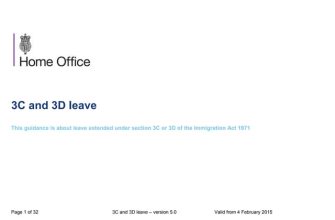As the global economy becomes increasingly interconnected, businesses in the United Kingdom are often looking to employ foreign workers to fill skills gaps, bring in fresh perspectives, and drive innovation. However, to do so legally, they must first obtain a sponsor licence. This article provides comprehensive sponsor licence guidance, detailing the process of obtaining a sponsorship license in the UK, the associated fees, and the responsibilities of being a sponsor. Whether you’re a small business owner or a HR professional in a multinational corporation, this guide will help you navigate the complex landscape of UK immigration law.
Understanding the Sponsor Licence
A sponsor licence is a permission granted by the UK government, specifically the Home Office, to an organisation, allowing it to employ non-EEA nationals. This is part of the UK’s points-based immigration system, which aims to control immigration while still allowing businesses to hire the talent they need. There are two types of sponsor licences: Tier 2, for long-term employment, and Tier 5, for temporary workers and volunteers.
Eligibility Criteria
To be eligible for a sponsor licence, your organisation must meet several criteria:
- Be a legitimate organisation operating in the UK
- Have no unspent criminal convictions for immigration offences or other serious crimes
- Provide documents to prove that you are based in the UK
- Have appropriate systems in place to manage your sponsored employees
It’s important to note that the Home Office has the right to visit your business to check if these criteria are met.
Applying for a Sponsor Licence
The application process for a sponsor licence involves several steps:
- Complete the online application form available on the UK government’s website.
- Submit the necessary supporting documents. These may include proof of your organisation’s existence, evidence of your HR systems, and documents showing that you are eligible to sponsor foreign workers.
- Pay the appropriate fee. The cost of a sponsor licence depends on the size of your organisation and the type of licence you are applying for.
Once your application is submitted, it will be reviewed by the Home Office. If approved, your licence will be valid for four years, after which it can be renewed.
Sponsor Licence Fees
The cost of a sponsor licence depends on the size of your organisation and the type of licence you are applying for. As of 2021, the fees are as follows:
- Small or charitable sponsors: £536 for Tier 2 or Tier 5
- Medium or large sponsors: £1,476 for Tier 2 or Tier 5
These fees are non-refundable, even if your application is refused.
Responsibilities of a Sponsor
Obtaining a sponsor licence is not just about paying a fee and filling out a form. It also comes with significant responsibilities. As a sponsor, you must:
- Ensure that the foreign workers you employ have the necessary skills, qualifications, and experience to do their jobs
- Only assign certificates of sponsorship to workers when the job is suitable for sponsorship
- Keep records of the foreign workers you sponsor, including their immigration status, the documents you used to check their right to work, and their contact details
- Report to the Home Office if there are any changes in your sponsored employees’ circumstances
Failure to comply with these responsibilities can result in your sponsor licence being suspended or revoked.
Conclusion
Obtaining a sponsorship license in the UK is a complex process that requires careful planning and attention to detail. However, with the right sponsor guidance, it can be a straightforward and manageable task. By understanding the process, meeting the eligibility criteria, and fulfilling your responsibilities as a sponsor, you can employ foreign workers legally and contribute to the UK’s diverse and dynamic workforce.







